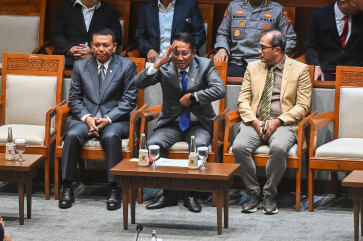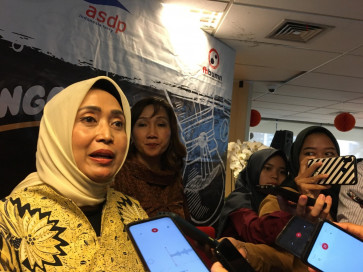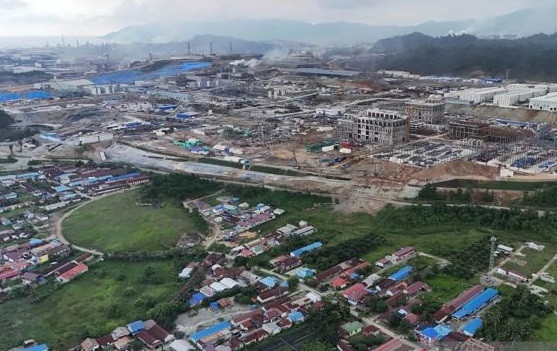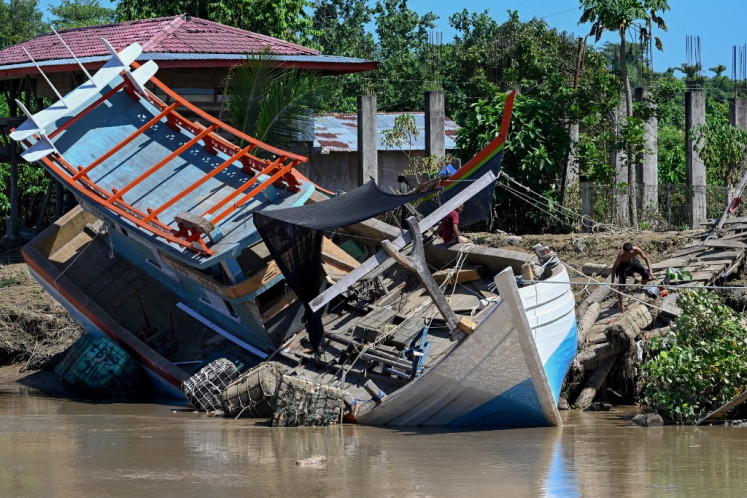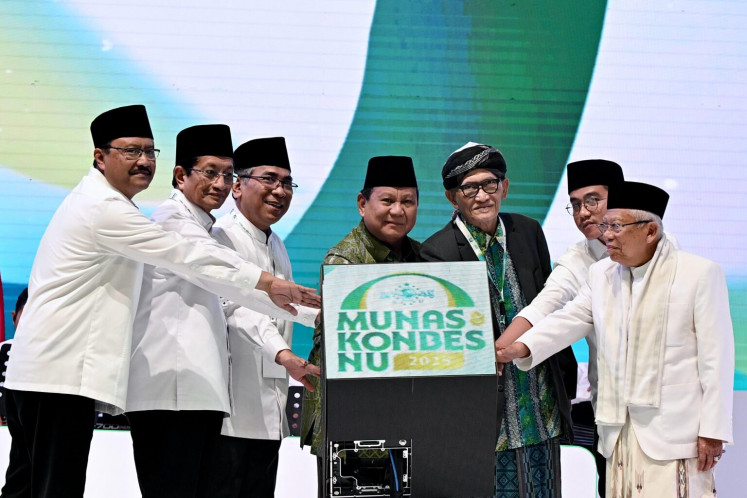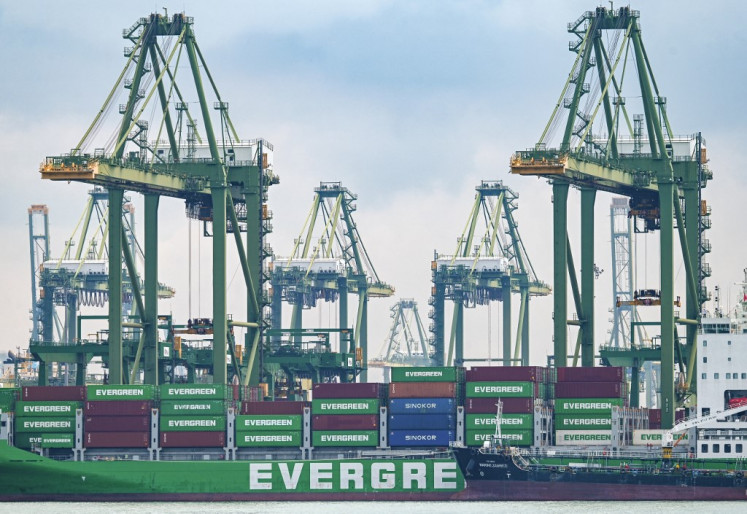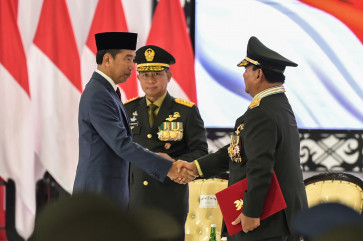Popular Reads
Top Results
Can't find what you're looking for?
View all search resultsPopular Reads
Top Results
Can't find what you're looking for?
View all search resultsIncoming Prabowo government must uphold human rights
There is an expectation by the people that every incoming government will bring in effective protection and promotion of human rights. However, the fundamental question many people are asking is: Will Prabowo's presidency improve Indonesia's international obligations to uphold human rights and ensure access to justice and effective remedies for victims?
Change text size
Gift Premium Articles
to Anyone
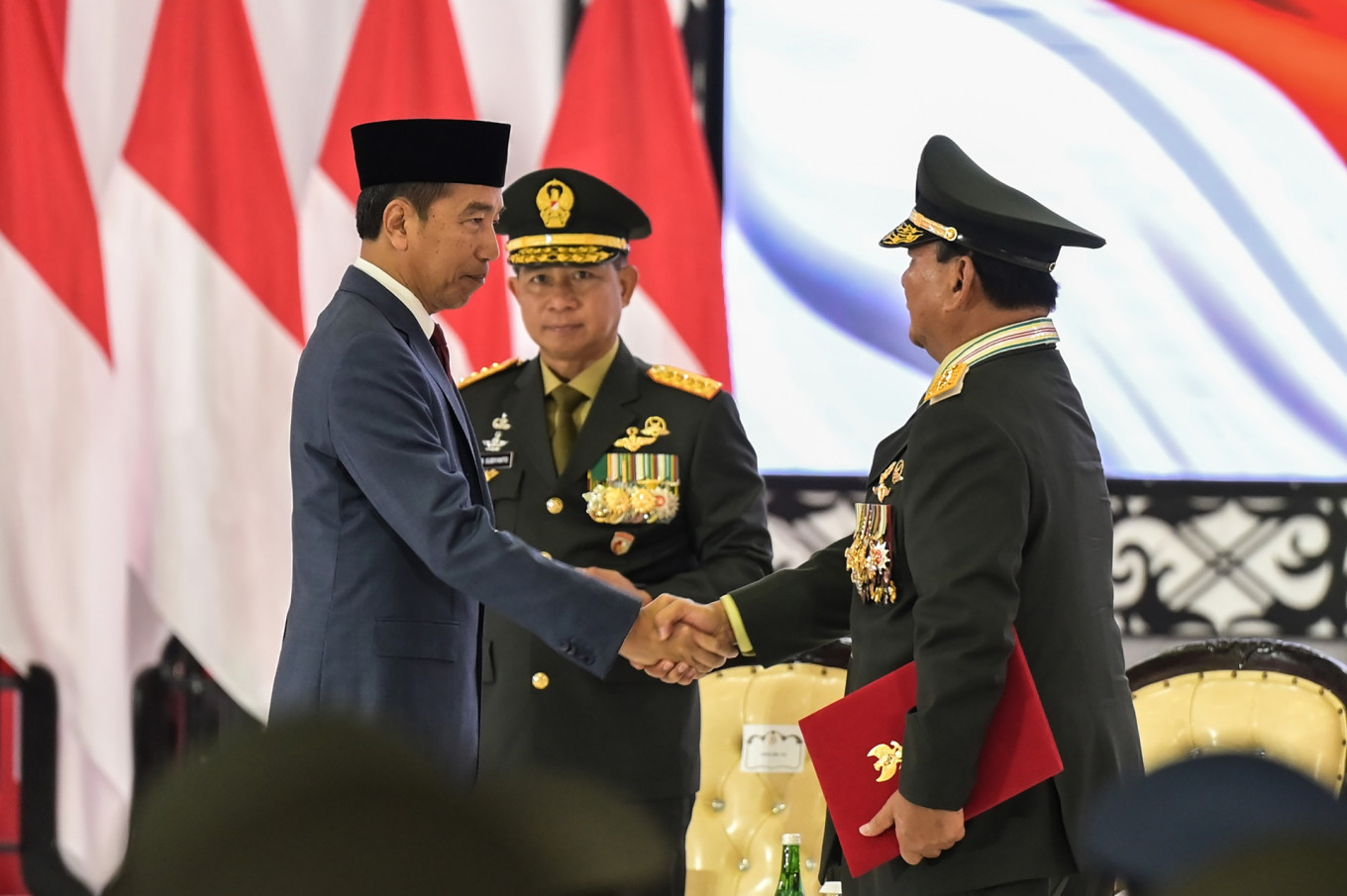 President Joko “Jokowi“ Widodo (left) shakes hands with Defense Minister Prabowo Subianto (center) in a ceremony in Jakarta on Feb. 28, 2024, as Indonesian Military (TNI) Commander Gen. Agus Subiyanto looks on. The event was held during an executive meeting of the Indonesian Military (TNI) and the National Police at the TNI headquarters in Cilangkap, Jakarta. (Antara/Bayu Pratama S)
President Joko “Jokowi“ Widodo (left) shakes hands with Defense Minister Prabowo Subianto (center) in a ceremony in Jakarta on Feb. 28, 2024, as Indonesian Military (TNI) Commander Gen. Agus Subiyanto looks on. The event was held during an executive meeting of the Indonesian Military (TNI) and the National Police at the TNI headquarters in Cilangkap, Jakarta. (Antara/Bayu Pratama S)
I
ndonesia faces a pivotal moment as the country's leadership will be handed over by President Joko "Jokowi" Widodo to president-elect Prabowo Subianto, following the announcement of Prabowo's victory in the 2024 presidential election by the General Elections Commission (KPU). Prabowo is set to assume the presidency on Oct. 20.
There is an expectation by the people that every incoming government will bring in effective protection and promotion of human rights. However, the fundamental question many people are asking is: Will Prabowo's presidency improve Indonesia's international obligations to uphold human rights and ensure access to justice and effective remedies for victims?
As the transition takes place, at least two significant challenges emerge. Concerns persist that outgoing President Jokowi and his government have not fulfilled promises to uphold human rights, particularly addressing past abuses, while doubts linger about the president-elect and his government’s commitment to ensure respect for human rights and access to justice and effective remedies for victims.
The lack of substantive action on past human rights violations taken by President Jokowi has caused unease. Despite initial promises to thoroughly investigate and address cases of human rights violations, progress in this regard has been minimal.
Many victims and their families are still awaiting justice for incidents such as the communist purge of 1965-66, the torture of suspected insurgents in Aceh during 1988-1989, the forced disappearances of pro-democracy activists in 1998, attacks against the Chinese community and reported widespread sexual assaults in Jakarta and other cities in 1998, and violent assaults on civilians in Wasior and Wamena in Papua between 2001 and 2003.
The failure to effectively investigate and prosecute suspected perpetrators not only perpetuates impunity but also undermines trust in the government's oft-expressed commitment to human rights.
Moreover, there is a troubling trend of government failing to address the growing crackdown on civic space and human rights violations in Indonesia.



